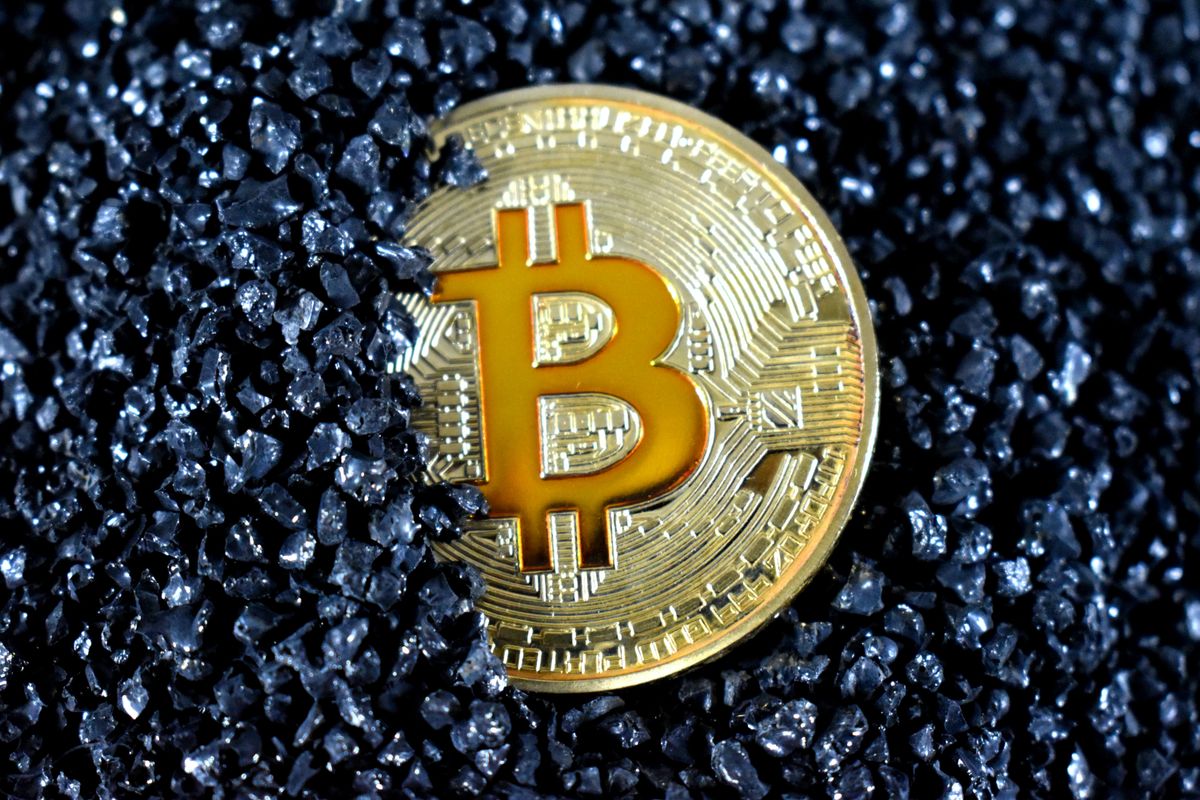Part 2 – Crypto Currency: An Introduction
Cryptocurrencies are a type of digital money that is stored and transferred electronically. But what does that really mean?

Hello and welcome back to my 9 week series on crypto currency and the changing world order.
This week we will be unpacking what a cryptocurrency is in the simplest way possible.
Introduction – What is cryptocurrency?
Cryptocurrencies are a type of digital money that is stored and transferred electronically. They're different from traditional money because they're not controlled by any government or financial institution, but rather by a decentralized network of computers. This makes them more secure and allows people to use them without needing to go through a bank or other middleman.
Think of it as money made specifically for libertarians: It's a currency that individuals have complete control over, The government/financial institutions cannot freeze your accounts, or stop you from spending it. They cannot stop you from owning it. (assuming you store it properly, which I will explain later on)
These are intrinsic benefits of cryptocurrencies, due to their decentralized nature. Instead of a single server base having control over the currency (for example, Facebook has their own servers around the world that they control and no one else can access) cryptocurrencies are run on a network of computers owned by individuals across the world. Anyone can run one of these computers (assuming they know how to set them up).
It is useful to view crypto-currency as a democracy and imagine your standard national currency (which is referred to as Fiat: think USD, Euros, Yen, etc.) as a dictatorship. This distinction shows the differences in both owning these assets, and how fiscal policy changes the value of your asset.
Under the “crypto democracy,” the people hold the power. By holding the currency and operating computers on its network, you get to vote on the future of the currency. You also get to use the currency however you wish. there is no government control here. You may buy, sell, and transfer your money whenever, wherever, and however you want. The people also get control over how the country (or currency in this case) is managed.
Under the “Fiat dictatorship,” you do not get a vote. The people at the top of the pyramid choose where you can spend it, and they also control how the country (or currency in this case) is managed without your consent. If they mismanage the country… you just have to suffer the consequences.
They know when you have spent it, and if you do something they do not like they will simply freeze your bank account. Cash is not a solution to this problem; I can hold billions of dollars worth of crypto in my pocket and the government and banks cannot do anything about it. I can travel the world with all of my money under my control. While there is no TSA limit to the amount of cash you can fly with, you can only fit so much in your carry-on.
Most importantly, In context to this series, we have no control over the monetary policy of our government (or the federal reserve in America). They raise rates, print money, stop printing money, bail out banks, and send billions of dollars in foreign aid to fund wars we aren’t involved in. Regardless of your political affiliation, I am sure you can think of a multitude of ways in which the government misuses our tax dollars. And many of these monetary policies weaken the value of every dollar you spend. The introduction article laid out some metrics, but I will repeat two here: The US dollar has lost 86% of its purchasing power since the 1970s. And The US Dollar has lost 97% of its value against Bitcoin in the last 5 years (as of 2022).
The government changes these monetary policies for many reasons, and some of them are very good reasons! The economy tends to thrive under an inflationary model. If your money is losing its value every year, it is in your best interest to spend it (or so the macroeconomic theory of Monetarism states).
It's important to remember that there are overarching goals in a country that we may not fully grasp on the individual level, but the inverse is also true. What is best for the country may not always be the best for us personally. Especially when many of the bills and statutes passed in our legislature are done in the interest of the congressman and congresswomen voting on them, rather than in the interest of we the people. (for example, the lovely senators of North Dakota who rejected a bill that would expand free school lunches for students who desperately need it, and then voted to increase their own meal reimbursements). This is a flagrant example of the misuse of power that we see in our government. Senators eating our tax dollars while children starve.
Cryptocurrency on the other hand is operated by We the People. Crypto has its own set of risks, but the trade-off is a fair one in my opinion.
What is Bitcoin?
Bitcoin is the very first cryptocurrency.
Transactions are recorded on a public ledger called the blockchain, which is maintained by a network of computers around the world.
If you are in the mood to dive into some heavy Jargon and try to fully understand how Bitcoin and cryptography work, I will direct you to this video which will explain it very well:
Here is the gist:
Bitcoin is a digital currency. To send a transaction, the transaction information is passed along to Bitcoin “miners”, these are the guys and gals running the Bitcoin ecosystem. their computers solve a very difficult math equation which is based on an encryption system called cryptography (hence the crypto in cryptocurrency). For a transaction to be added to the blockchain (the public ledger that shows where every single bitcoin is, and where it has been), the majority of computers that make up the Bitcoin web must agree on the transaction. this is what keeps Bitcoin secure, and prevents someone from stealing your crypto: To steal your Bitcoin they would have to spoof the transaction and have every other computer that makes up the “server” confirm the transaction. there is no way for a single attacker or even a large quantity of attackers to accomplish this.

Think of it like this:
Imagine a blockchain is like a digital Lego tower that's being built by a group of people. Each person has their own set of Legos, and they're all working together to build the tower.
Every time someone adds a new block to the tower, they have to follow a set of rules to make sure it fits in with the other blocks and doesn't mess up the structure. Once they've added their block, everyone else in the group has to agree that it's a valid addition before it gets added to the tower permanently.
As more and more people add blocks to the tower, it gets taller and more complex. But because everyone is following the same rules and agreeing on each new block, the tower stays stable and secure.
Now, imagine that this digital Lego tower represents a digital ledger, and each block represents a new transaction. Each transaction is verified by multiple people in the network, and once it's added to the blockchain, it can't be changed or removed.
If someone wanted to change one block, they would have to replace every single block before and after it for it to appear legitimate. This is simply not possible with current technology.
Bitcoin “miners” use their computers to process the math equations which put transactions into blocks, that are then chained together (hence the name “blockchain”, it's a chain of blocks full of transactions). They are rewarded with a mining fee (paid in Bitcoin) for each transaction they process. This incentivizes accuracy, and speed.
Bitcoin is… Deflationary?
Another feature of Bitcoin is its limited supply. Only 21 million coins will ever exist, and over 18 million are already in circulation. This is a crucial element to understand the value of Bitcoin (and crypto in general). This means that almost all the Bitcoin that ever will exist, does. As more people purchase and hold their Bitcoin, the circulating supply decreases.
